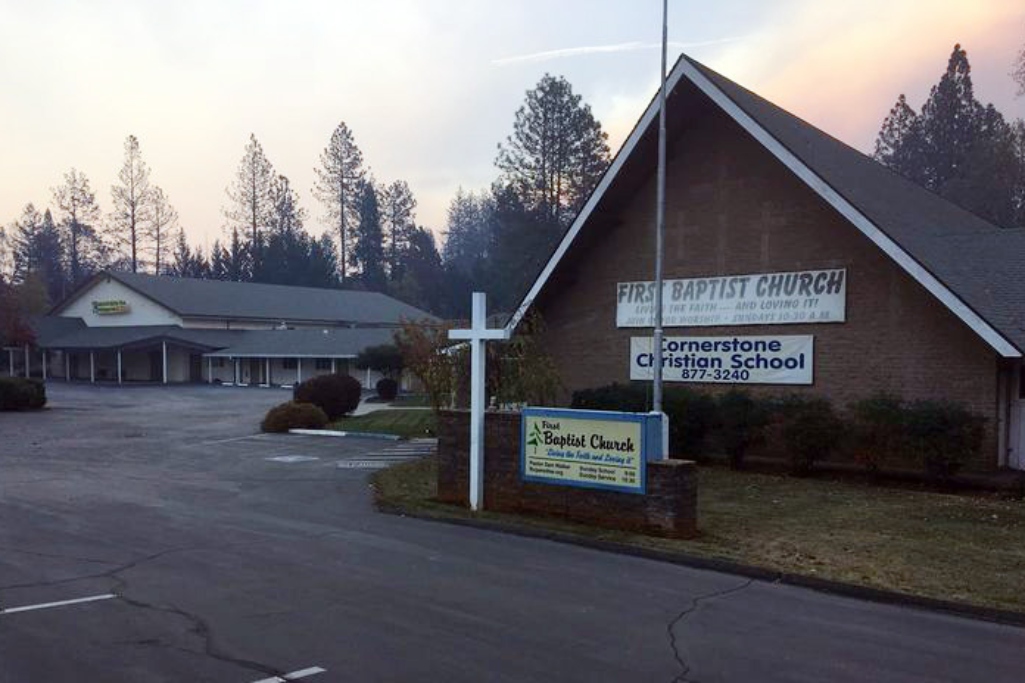
Illinois Baptist executive director Nate Adams greets others at the state's 2023 annual meeting.
NASHVILLE (BP) — Plato is credited with the origins of the phrase, “Necessity is the mother of invention.” As churches and denominational leaders have also realized, this reality led to the need for a different kind of staff member.
It’s even more the case at the state convention level. To adequately resource churches across a broad area with minimal staff, it has become more necessary to look for those with a sizable toolbelt.
“It is not financially practical or fiscally responsible to add staff to smaller state conventions that can only do one thing,” said David Manner, executive director for the Kansas-Nebraska Convention of Southern Baptists. “There are too many jobs and too much territory to only do ministry from a single ministry sweet-spot as specialists.
“So, our convention staff are generalists who have intentionally developed a broad scope of knowledge across various ministry disciplines so they can respond immediately to the needs of our churches and leaders instead of making them wait until a specialist is available.”
Manner wasn’t the only state leader to use the term “generalist” in discussions with Baptist Press. It is a necessity driven by the realities of a changing landscape and a desire on the part of leaders to be good stewards of the gifts and resources given them.
The need for generalists became more apparent 12-14 years ago for Nate Adams, executive director for the Illinois Baptist State Association (IBSA).
At the time almost all of the state’s 33 Baptist associations were led by full-time associational staff, with more than a third of them funded by the North American Mission Board (NAMB) and the state convention. As NAMB moved its focus, and funding, toward church planting, it affected associational missions to the point that only six of those roles are full-time today.
Most of those associational directors fit the “generalist” role, Adams said. Although they could look to state and national entities for specialized training or resources, they also possess the know-how to assist churches in areas such as Sunday school, worship, missions and evangelism.
The state is doing what it can to fill those needs once covered by full-time associational leaders.
“For many pastors and churches, there is now a noticeable absence of the trusted local generalist who can help them or at least get them started in multiple ministry areas,” Adams said. “And we as a state network are seeking to more proactively partner with local associations to provide people who can help churches in a variety of ministry areas.”
It’s important to hire state staff who possess a wide set of ministry skills and background. It is just as important that they fit that state convention’s model for resourcing affiliated churches.
“The foundation of hiring our convention staff is not necessarily their expertise in one specific discipline,” said Manner. “It is instead how they are able to use their various gifts to serve churches, maximize partnerships and propel leaders through a disciple-multiplying culture. Those foundational principles are where we begin, not with their specialized ministry discipline.”
Just as the ministry landscape for churches remains in flux, so it does for state conventions.
“Each year our state network leaders are needing to learn new ways to assist churches with new needs such as church revitalization and restarting, sex abuse prevention and ministry to survivors, online and virtual ministry strategies during a pandemic, pastor and staff search processes in a day of significantly fewer candidates, legal issues threatening their religious freedoms, and more,” said Adams.
This is happening at a time, he added, when giving through the Cooperative Program has not kept pace with inflation and other costs.
“Our state staff has fewer specialists in multiple church ministries, and those staff must absorb these new challenges as well,” Adams said. “So we are increasingly looking for network staff who don’t just have experience or skill in a certain ministry or even multiple ministries, but who can learn and adapt quickly to the many new challenges churches face.”
Looking for generalists isn’t just for smaller state conventions, said Manner. Nor is it a passing fad.
“There are always more ministry jobs to fill than budget money to fill them. So, hiring ministry staff that can only do one thing well is poor stewardship,” he said.
“Those preparing for ministry who are generalists, or able to wear various ministry hats, are going to be more appealing to churches who have multiple ministry holes to fill.”
(EDITOR’S NOTE — Scott Barkley is chief national correspondent for Baptist Press.)


